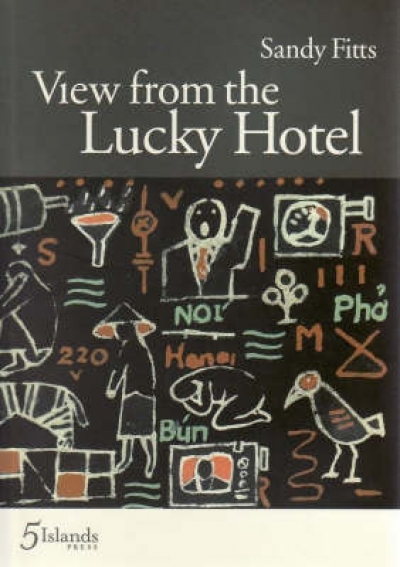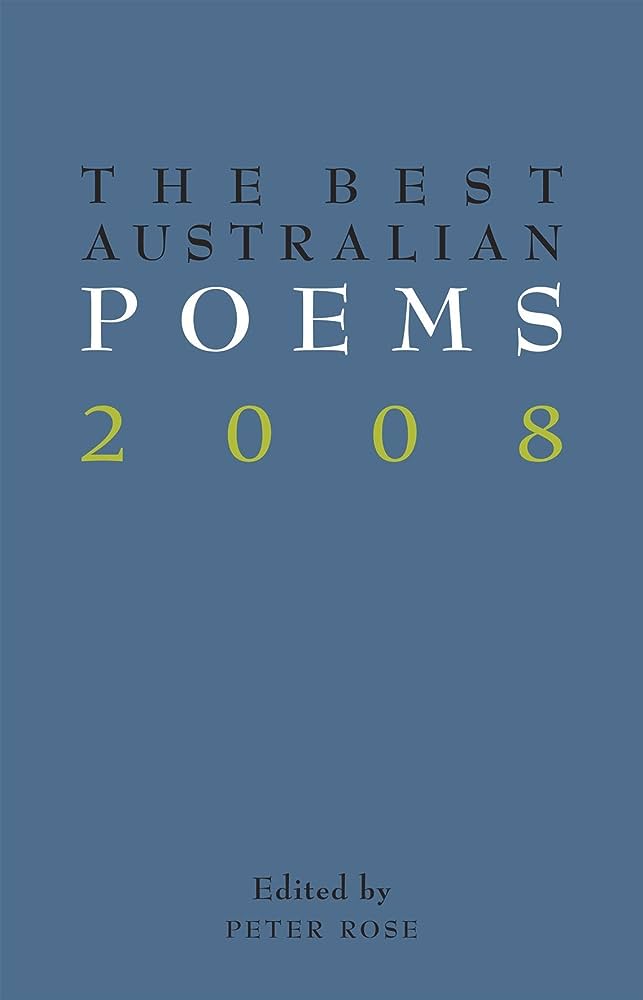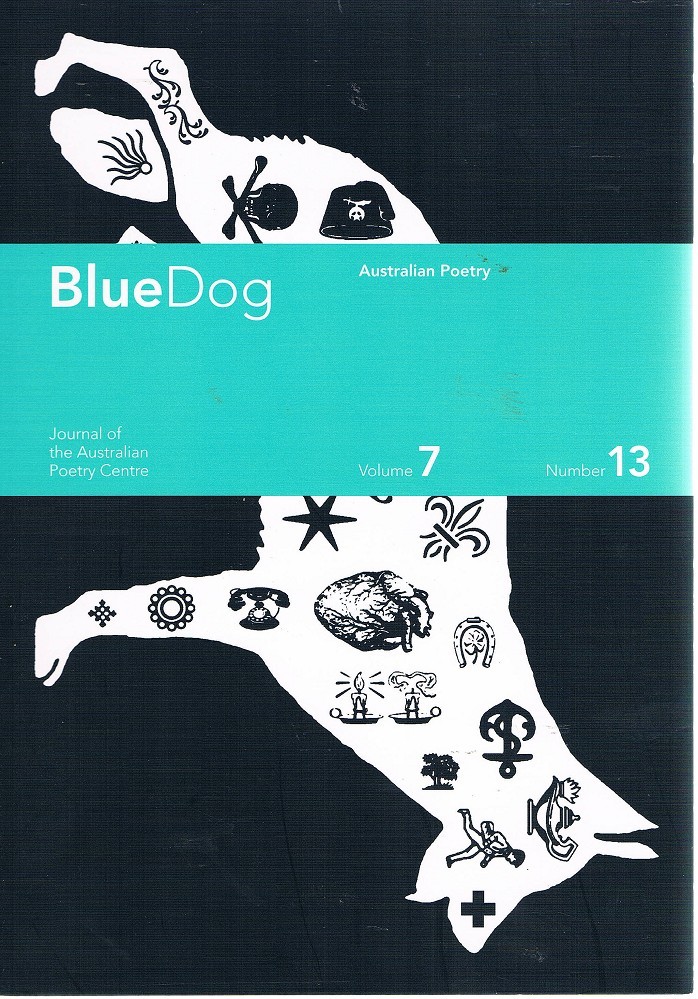Poetry
To Sculpt The Moment: Newcastle Poetry Prize Anthology 2008 edited by Hunter Writers’ Centre
Despite the deadly title, this anthology of twenty-eight poems from the 2008 Newcastle Poetry Prize is replete with gems. Assembled from 423 entries by judges Jan Owen, Philip Salom, and Richard Tipping – effectively the anthology’s editors – it is a brilliant sampler that few anthologies can match for the legroom offered to the longer poem and poetry sequence.
... (read more)There are traces of a constant, oscillating motion of conscience in Sandy Fitts’s poetry. References to the burden of ‘history’ pit the poems, with ‘history’ standing for everything we need to address in the present, through the power of eloquence, but also in fear that such words are not enough. From the opening, prize-winning poem, ‘Waiting for Goya’, to the closing images of ‘Blue Mop’, the act of poetry emerges and is scrutinised for what it might do in the world:
... (read more)our figures leaning toward each other
to exchange a few uncertain words
about the mop- utility- aesthetics-
The Best Australian Poems 2008 edited by Peter Rose & The Best Australian Poetry 2008 edited by David Brooks
A poet friend, getting wind that I was reviewing the two latest ‘Bests’ and wishing to satirise the reviewing platitudes that sometimes greet the arrival of such anthologies, offered the following advice: ‘Remember to say that both collections are a welcome addition to the literary landscape and that both editors have included some welcome new voices in Australian poetry.’ Peter Rose’s The Best Australian Poems 2008 and David Brooks’s The Best Australian Poetry 2008 provide commendable surveys of a year in Australian poetry. Both include ‘new voices’ as well as sonorous old ones. Variations in quality inevitably occur, but many of the ‘new’ offerings are excellent and few, if any, are duds. This can only be welcomed.
... (read more)There are no lions to whelp in the street any more,
and conversely
the Council by-laws forbid
the keeping of the pigs and chickens, goats and cattle
whose prodigious multiplications
could serve as an adequate metaphor
and there are only so many burgeoning plants
you can squeeze into a one-by-three-metre courtyard
but the possums have come back,
and the daylight moon
... (read more)Everyone seems to be writing about ‘light’ at the moment. It is currently an all-purpose metaphor, the intangible symbol for all intangibles: mental, physical and emotional. With Brook Emery, it is far more precise. The ‘Uncommon Light’ of Emery’s title poem comes from St Augustine, and ideas of ‘common’ and ‘uncommon’ light recur throughout the poems, but are re-defined, flipped, turned and re-examined throughout this thoughtful and sustained book.
... (read more)John Jenkins (especially in his collaborations with Ken Bolton) is normally thought of as an ‘experimental’ poet, but in Growing up with Mr Menzies he is on more traditional ground. Born in 1949 in Melbourne, Jenkins has created the fictional character Felix Hayes, who was also born in 1949 in Melbourne. In a series of poems, he traces Felix’s life from birth through to early adolescence. Rather neatly, this period of his life fits with the so-called ‘Menzies era’; Robert Menzies returned to power in 1949 and left it (voluntarily) in 1966. It is thus the parallel story of two characters, one large and looming, the other small but getting bigger.
... (read more)Blue Dog, the Journal of the Australian Poetry Centre, has a democratic approach to Australian poetry. Submissions are judged anonymously by a team of editors from each state and territory. The journal, as the two reviews of small-press publications reveal, shows no preference for big names. The results, however, are mixed.
Highlights include Andy Jackson’s ‘Severance’, which provides a measured expression of nostalgia. The poem reflects on a childhood marked by sexual misadventure – ‘You and I were the first in our group to buy porn, / though it took us two attempts – we’d assumed Playboy / couldn’t cost much more than TV Week. Honestly, / it was the soft light palming pale curves / that drew us, not the shock of shallow gynaecology’ – and loss – ‘Years before, / our legs patterned with gum tree shadows, / we sat on either end of a bench, waiting for your mum / to come again to comfort you in your homesickness’.
... (read more)From his first book Canticles on the Skin (1970) to his twelfth, The Goldfinches of Baghdad (2006), Robert Adamson’s poetry has undergone many transformations, but The Golden Bird, his new and rather large Selected Poems, modifies or disguises those changes by arranging the poems thematically, not chronologically, except for the last section, which contains new poems. Many of Adamson’s early themes have remained throughout his career. Strangely, the sharply witty ‘Sonnets to be Written from Prison’ (‘If I was in solitary I could dream – a fashionable bore, / writing books on drugs, birds or revolution’), from his third book Swamp Riddles (1974), are excluded along with other fine poems, such as ‘Sibyl’ and ‘The Thoughtless Shore’, his elegy to Michael Dransfield, as well as the chapbook Theatre (1974), a response to Yves Bonnefoy’s work of that name.
... (read more)White Knight with Beebox: New and selected poems by Peter Steele
There are times when I read a book that reinvigorates important questions for me – such as how language carries and creates meaning, and what, after all, is the function and force of poetry. Usually, such a book is a creative work and I like to imagine that the first readers of volumes by George Herbert or John Donne responded with such questions – to poetry that consistently registered a persuasive complexity and which, while emotionally restrained, carried a pithy emotional charge.
... (read more)There’s a sleechy smell here, grey frogs on the bank
like slurried earth, rotund toads hopping across lily pads,
grunting like sultans trying out cushions. Fish mouth
the surface with so many unsinkable O’s, and the larval








